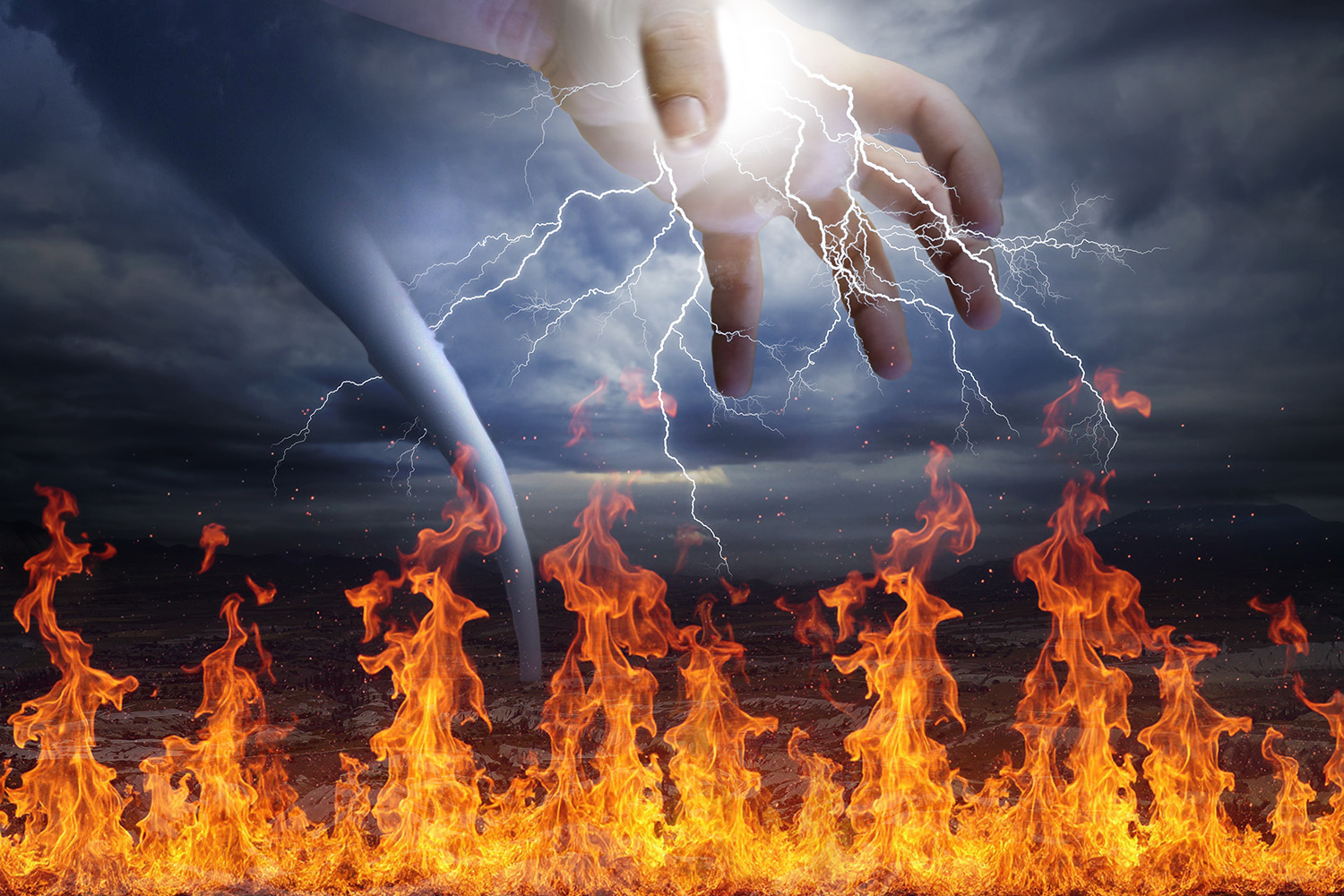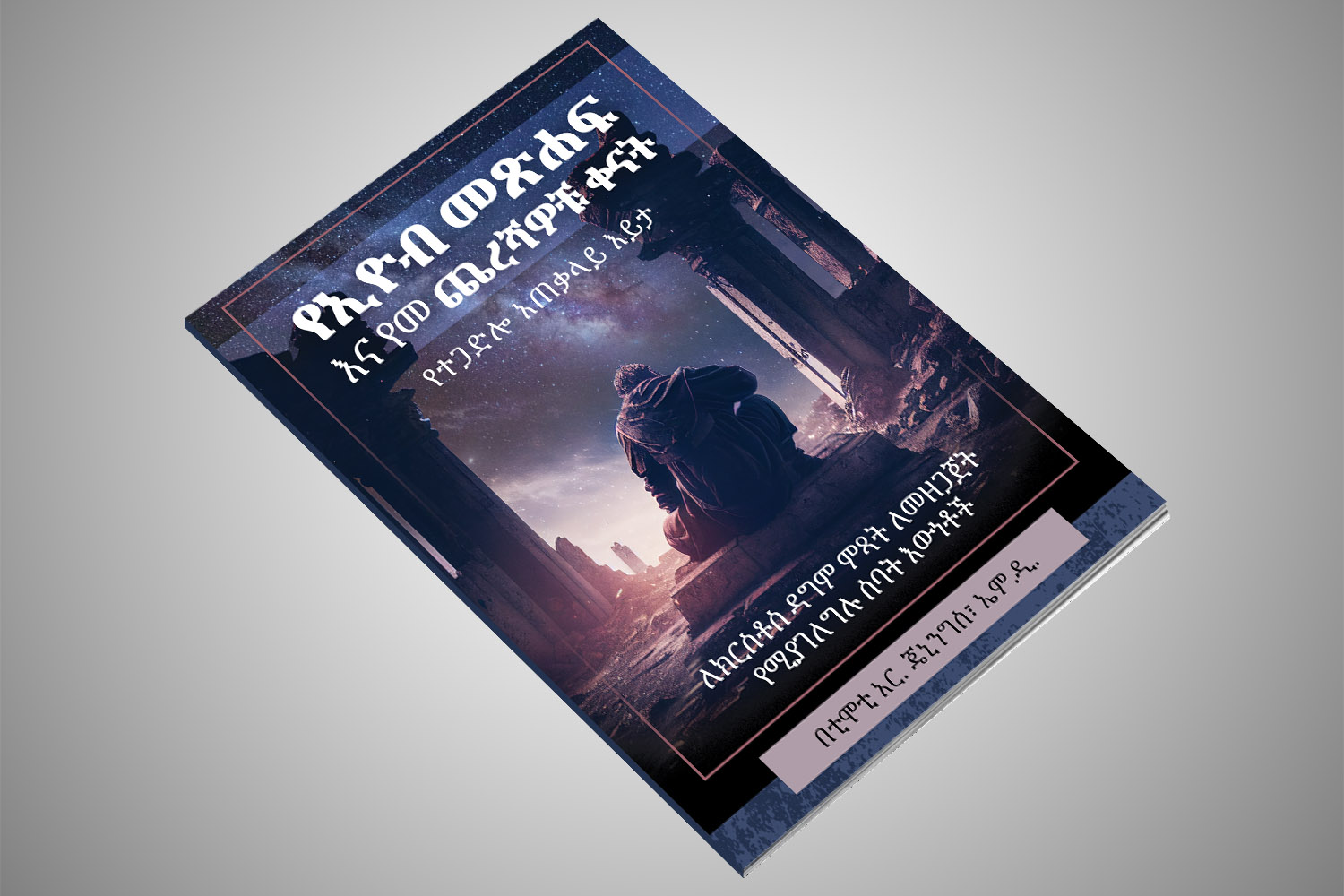While I lam truly convicted of the truth about the character of God as revealed and taught by your ministry, I find it difficult to converse with others on this topic when I get painted into the “wrath of God” corner, which seems to have so much scriptural support.
Can you help me understand how to apply these scriptures and this phrase, in light of our understanding of His true character?
Thank you and may God continue to bless you and the Come & Reason “family”. You have all blessed me through your contributions to the recording/podcast Quarterly study hour.
EH
The following is an excerpt from my next book entitled The God-Shaped Brain – How Your View of God Changes Your Brain, which I hope will be available in the near future:
Why did God say to Adam, “in the day you eat this fruit, you will die?” Because He would be forced to kill? Or because mankind would deviate from the law of love, the law of life, and without intervention, the only consequence would be ruin and death? And once our first parents infected themselves with this terminal condition, what was needed? A remedy and a cure! That cure was born as a baby in Bethlehem.
Love Risks Being Misunderstood in Order to Save
As I have presented these ideas from place to place, I’ve met individuals who don’t like this view. They struggle with this truth because of statements in the Bible in which God seems to be saying, “I’m mad. I’m angry. And in my wrath, I’m going to kill!”
The city of murderers is doomed! I myself will pile up the firewood. Bring more wood! Fan the flames! Cook the meat! Boil away the broth! Burn up the bones! Now set the empty bronze pot on the coals and let it get red-hot…. You will not be pure again until you have felt the full force of my anger. I, the Lord, have spoken. The time has come for me to act. (Ezekiel 24:2,9-14, emphasis added).
At first glance this text sounds terrifying. I remember how I used to struggle with passages like this, always afraid that God was waiting to get me—and get me good–if I slipped up. But I realized my misunderstandings about God occurred only because I never asked the right questions when reading these difficult texts. The question is not whether God spoke these words through His prophet, for I am confident He did. The important question is: What actually happened after He spoke these words?
Did God use His power to destroy those about whom He spoke such terrifying words? Or did their rebellion separate them from His protection, thus resulting in their destruction?
The children of Israel refused to follow God, His methods, and principles. But God did not hurt them. Instead, He set them free! He gave them what they chose – a life separated from Him. He stopped interceding in their behalf. He removed His protective hand at their insistence, and, before long, here came the Babylonians who, in true Babylonian style, destroyed their city. It was the Babylonians, not God, who delivered the destructive punch.
This letting go by God, this setting free to reap the consequences of our own persistent, rebellious choices, is what the Bible calls “God’s wrath.” Paul tells us the “wrath” of God occurs because of persistently rejecting God, refusing the knowledge of Him, and preferring our own way over God’s. Then Paul sates, three times, that the unruly in the first century after Christ, experienced God’s wrath when God “gave them up” to reap the consequences of their own choices (Romans 1:18-32).
Jesus, who became sin for us, experienced God’s “wrath” on our behalf at the cross and cried out, “My God, my God, why have you forsaken me?” not “why are you killing me” (Matthew 27:46). All through the Bible, the story is the same.
In Deuteronomy God’s wrath is threatened: “For a fire has been kindled by my wrath, one that burns to the realm of death below. It will devour the earth and its harvests and set afire the foundations of the mountains. I will heap calamities upon them and spend my arrows against them” (32:22, 23). But God says the wise will understand what His wrath really is: “If only they were wise and would understand this and discern what their end will be! How could one man chase a thousand, or two put ten thousand to flight, unless their Rock had sold them, unless the Lord had given them up?” (Deuteronomy 32:29, 30, emphasis added).
Love Cannot Be Forced
The wise man understands that love cannot be forced, only freely given. The discerning woman realizes the angriest, most wrathful act love can take is to let the object of His love go. Again God makes plain that His anger or wrath is letting go. “When that happens, I will become angry with them; I will abandon them, and they will be destroyed. Many terrible disasters will come upon them, and then they will realize that these things are happening to them because I, their God, am no longer with them”[1] (Deuteronomy 31:17, emphasis added).
But why would God speak in such threatening language through Ezekiel if He didn’t actually burn the city? When our children are in danger, when they will not listen, do we, as loving parents, raise our voice to warn and protect? “The people of Israel are as stubborn as mules. How can I feed them like lambs in a meadow?”[2] (Hosea 4:16). God hated that their hearts were so hard it was necessary for Him to speak such harsh words, but the God of Love risks all in order to save His children.
[1]American Bible Society: The Holy Bible : The Good News Translation. 2nd ed. New York : American Bible Society, 1992, S. Dt 31:17
[2]American Bible Society: The Holy Bible : The Good News Translation. 2nd ed. New York : American Bible Society, 1992, S. Ho 4:16











 using your credit or debit card (no PayPal account needed, unless you want to set up a monthly, recurring payment).
using your credit or debit card (no PayPal account needed, unless you want to set up a monthly, recurring payment). instead?
instead?